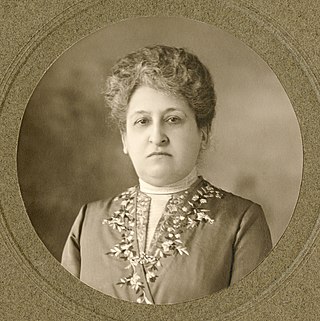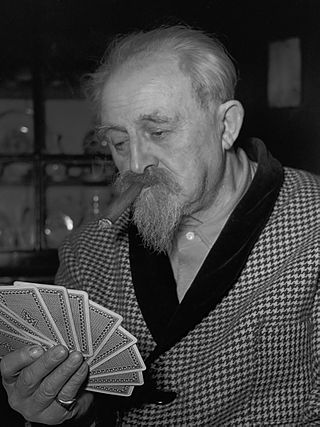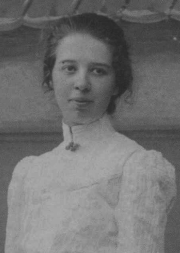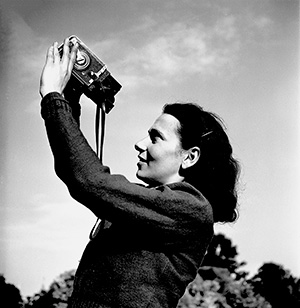This article needs additional citations for verification .(July 2009) |
| Total population | |
|---|---|
| 37,382 [1] (CBS, 2023) | |
| Languages | |
| Dutch, Greek | |
| Religion | |
| Greek Orthodox Church | |
| Related ethnic groups | |
| Greeks |
The Greeks in the Netherlands number 37,382 as of 2023.
This article needs additional citations for verification .(July 2009) |
| Total population | |
|---|---|
| 37,382 [1] (CBS, 2023) | |
| Languages | |
| Dutch, Greek | |
| Religion | |
| Greek Orthodox Church | |
| Related ethnic groups | |
| Greeks |
The Greeks in the Netherlands number 37,382 as of 2023.
The first Greek Orthodox congregation in Amsterdam was founded by Metropolitan Gerasimos Avlonites. [2]

The Netherlands, informally Holland, is a country located in northwestern Europe with overseas territories in the Caribbean. It is the largest of the four constituent countries of the Kingdom of the Netherlands. The Netherlands consists of twelve provinces; it borders Germany to the east and Belgium to the south, with a North Sea coastline to the north and west. It has a border with France on the split island of Saint Martin in the Caribbean. It shares maritime borders with the United Kingdom, Germany, and Belgium. The official language is Dutch, with West Frisian as a secondary official language in the province of Friesland. Dutch, English, and Papiamento are official in the Caribbean territories.

Islam is the second largest religion in the Netherlands, after Christianity, and is practised by 5% of the population according to 2018 estimates. The majority of Muslims in the Netherlands belong to the Sunni denomination. Many reside in the country's four major cities: Amsterdam, Rotterdam, The Hague and Utrecht.

Margot Betti Frank was the elder daughter of Otto Frank and Edith Frank and the elder sister of Anne Frank. Margot's deportation order from the Gestapo hastened the Frank family into hiding. According to the diary of her younger sister, Anne, Margot kept a diary of her own, but no trace of it has ever been found. She died in Bergen-Belsen concentration camp.

Aletta Henriëtte Jacobs was a Dutch physician and women's suffrage activist. As the first woman officially to attend a Dutch university, she became one of the first female physicians in the Netherlands. In 1882, she founded the world's first birth control clinic and was a leader in both the Dutch and international women's movements. She led campaigns aimed at deregulating prostitution, improving women's working conditions, promoting peace and calling for women's right to vote.

George Wilhelm Kettmann or George Kettmann Jr. was a Dutch poet, writer, journalist and publisher who promoted Nazism in the Netherlands. With his wife, he founded the best known Dutch Nazi publishing house, De Amsterdamsche Keurkamer. Until 1941 he was editor in chief of Volk en Vaderland, the weekly journal of the National Socialist Movement in the Netherlands (NSB), the movement of Anton Mussert.
Tjalie Robinson is the main alias of the Indo (Eurasian) intellectual and writer Jan Boon also known as Vincent Mahieu. His father Cornelis Boon, a Royal Netherlands East Indies Army (KNIL) sergeant, was Dutch and his Indo-European mother Fela Robinson was part Scottish and Javanese.
Turks in the Netherlands refers to people of full or partial Turkish ethnicity living in the Netherlands. They form the largest ethnic minority group in the country; thus, the Turks are the second-largest ethnic group in the Netherlands after the ethnic Dutch. The majority of Dutch Turks descend from the Republic of Turkey; however, there has also been significant Turkish migration waves from other post-Ottoman countries including ethnic Turkish communities which have come to the Netherlands from the Balkans, the island of Cyprus, as well as from other parts of the Levant. More recently, during the European migrant crisis significant waves of Turkish minorities from Syria and Kosovo have also arrived in the Netherlands. In addition, there has been migration to the Netherlands from the Turkish diaspora; many Turkish-Belgians and Turkish-Germans have arrived in the country as Belgian and German citizens.

Johannes Carolus Bernardus (Jan) Sluijters, or Sluyters was a Dutch painter and co-founder of the Moderne Kunstkring.
Cape Verdeans in the Netherlands consist of migrants from Cape Verde to the Netherlands and their descendants. As of 2022, figures from Statistics Netherlands showed 23,150 people of Cape Verdean origin in the Netherlands.
Moroccans in the Netherlands are Dutch citizens of Moroccan origin. They consist of immigrants from Morocco and their descendants, and form the second largest ethnic group in the Netherlands.
Dutch Pakistanis formed a population of 27,261 individuals according to the latest official statistics published by the Netherlands Centraal Bureau voor de Statistiek on 1 January 2022.

Barend Joseph Stokvis was a physician and professor of physiology and pharmacology at the University of Amsterdam. He is mainly remembered for his description of acute porphyria in 1889. As a researcher in chemical pathology he made contributions to the understanding of a number of diseases, such as diabetes. He was also considered an expert in tropical medicine and a celebrated medical educator. He authored an influential pharmacology textbook. Stokvis was one of a number of prominent 19th century Jewish physicians in the Netherlands.
The Indo people are Eurasian people living in or connected with Indonesia. In its narrowest sense, the term refers to people in the former Dutch East Indies who held European legal status but were of mixed Dutch and indigenous Indonesian descent as well as their descendants today.

Clara Gertrud Wichmann was a German–Dutch lawyer and anarchist feminist activist, who became a leading advocate of criminal justice reform and prison abolition in the Netherlands.

Joceline Clemencia was an Afro-Curaçaoan writer, linguist, feminist and independence activist. She advocated for the Creole language spoken in Curaçao, Papiamento, to become an official language and was successful in the struggle, having created both language schools and texts to further its cultural significance. She was in favor of full independence of Curaçao from the Netherlands.

Catharine van Tussenbroek was a Dutch physician and feminist. She was the second woman to qualify as a physician in the Netherlands and the first physician to confirm evidence of the ovarian type of ectopic pregnancy. A foundation that administers research grants was set up in her name to continue her legacy of empowering women.

As of 2018, Wolters Kluwer ranks as the Dutch biggest publisher of books in terms of revenue. Other notable Dutch houses include Brill and Elsevier.
Josine Reuling was the pen name of the Dutch writer, Gerardina Anna Reuling. Known for her psychological novels, her characters called into question conservative societal behaviors. Her novel Terug naar het eiland was one of the first lesbian literary works published in The Netherlands. It was unique in that it did not evaluate lesbianism on a binary trajectory or in relationship to masculinity or masculine traits. There are several streets named in her honor throughout The Netherlands.
Dutch Mexicans are Mexican citizens of Dutch descent.

Maria Austria was an Austro-Dutch photographer who is considered an important post-war photographer of the Netherlands, and was a theatre and documentary photographer. Her neorealistic, humanist photo reportage was exhibited at the Museum of Modern Art in 1953, the Stedelijk Museum Amsterdam in 1958, the Van Gogh Museum in 1975, and the Joods Historisch Museum in 2001.
Tyerman has told that John Jones wrote to the patriarch of Smyrna and received confirmation that Erasmus was indeed Bishop of Arcadia, in Crete. The Greeks in Amsterdam, rather than denounce him as an imposture, acknowledged him as founding the first Greek Church there. He was not an ignorant man, but a renowned scholar, having participated in the publication of a serious work in London and Amsterdam.